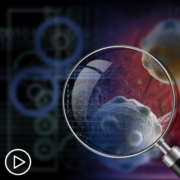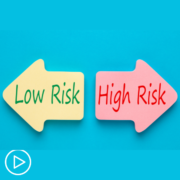How Can MPN Patients Stay Up to Date With New Treatments?
How Can MPN Patients Stay Up to Date With New Treatments? from Patient Empowerment Network on Vimeo.
What are some ways for MPN patients to stay updated on new treatments? MPN expert Dr. Claire Harrison from Guy’s and St. Thomas’ Hospital in London shares resources for MPN treatment news and the benefits that data sharing brings for all MPN patients.
See More from Best MPN Care No Matter Where You Live
Related Resources:

|

|

|
Transcript:
Dr. Nicole Rochester:
Dr. Harrison, how can patients best keep up with the new treatments and communicate with their doctors in a way that makes sure that they have access to these new therapies?
Dr. Claire Harrison:
Well, I think patient advocacy groups are really important here, and use of social media and the Internet, you’re only a few clicks away from updated data, programs like these, but you also have to trust your team and trust your doctor. We all have to keep up to date. That is a professional requirement, and we also are all networked, so I’d probably get 10 to 15 emails a day from colleague saying, “Hi Claire, can I talk to you about this?” There was an email just the other day about a patient in Washington, actually a very young child, we are all connected.
We all want the best for our patients. But do you remember that you can contribute as a patient to advance this in your field, and I know many patients are really interested in this, if you are asked to submit in a blood sample, giving permission for us to use your data. So if we can touch maybe on the field of real-world data and real-world data collection here would be good, so what on the real world data? What does that mean? And so this is becoming a really important way that’s recognized by the FDA and other approval agencies in the world, so in Europe, we have EMEA, for example, and in the UK, we have NHRA as a way of collecting data on agents, so once they are approved, we collect data with regard to how the patients do.
We’ve traditionally done this, but increasingly, as we use electronic data for our patients, we’re more able to collect real-world data, how does my patient who is with myelofibrosis on ruxolitinib (Jakafi) in my clinic inside East London do? So if we can pull that data, we learn a lot more about how these agents are working in patients outside of clinical trial, so you will be contributing if you allow us to collect that kind of data, we discovered JAK2 mutations, CALR mutations, etcetera from samples collected from patients and data. If you want to be part of a clinical trial, then by all means, ask your healthcare team, many MPN centers have lists of trials, and you can always look at clinicaltrials.gov, but boy you throw up a lot of different options when you search in that…on that website.
Dr. Nicole Rochester:
Thank you. I think it’s important to talk about real-world data because in this day and age, many of us are very protective about our personal health information and we should be, but as you stated, having access to that data is really a key way to advance the science and technology in the treatment of some of these conditions, so I really appreciate you sharing that.
Dr. Claire Harrison:
I think just to point out, and I’m sure the audience is acutely aware of what did we learn about COVID? We learned an awful lot about COVID from real-world data from all you MPN patients who gave samples, who told us about how you did with COVID, that’s how we learned about what happened to patients during COVID with MPN, how they responded to vaccination, etcetera. It’s really powerful. And your data will be anonymized, it won’t be linked back to you, Nicole Rochester, or me, Claire Harrison it will be completely anonymous.



